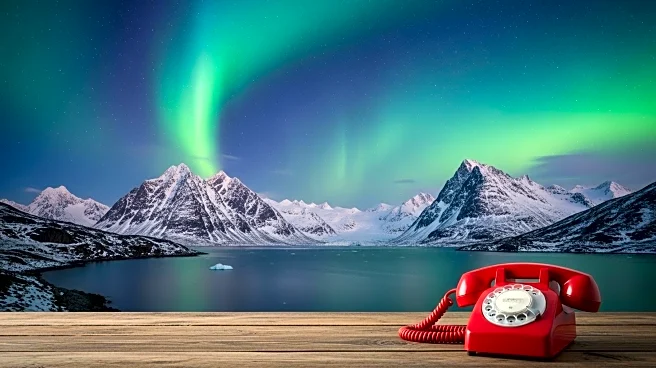What's Happening?
The Danish government has summoned the acting US ambassador to Copenhagen, Mark Stroh, to protest actions by allies of President Trump in Greenland. The Danish Foreign Ministry expressed concerns over foreign actors showing interest in Greenland, a territory of Denmark. Although the identities of the three Americans involved were not disclosed, they are reportedly attempting to weaken Greenland's ties to Denmark. President Trump has previously expressed a desire to annex Greenland, proposing that the island become independent and enter a compact of free association with the US, which would involve American influence in areas such as defense. This move has been met with resistance from Danish leaders, including Prime Minister Mette Frederiksen, who rejected the idea in 2019, leading to the cancellation of a state visit by Trump.
Why It's Important?
The situation highlights ongoing geopolitical tensions between the US and Denmark regarding Greenland, a strategically significant territory due to its location and resources. The actions of Trump allies could strain diplomatic relations between the two nations, impacting international cooperation in the Arctic region. Greenland's potential independence and association with the US could alter the balance of power in the Arctic, affecting security and economic interests. Danish leaders have criticized the US for under-investing in Greenland's economy and security, suggesting that American ownership could benefit the island's residents. This development could have broader implications for US foreign policy and its approach to territorial expansion.
What's Next?
The US and Denmark may engage in further diplomatic discussions to address the concerns raised by the Danish government. The situation could lead to increased scrutiny of US activities in Greenland by international observers. Danish leaders may seek to strengthen Greenland's ties to Denmark to counteract US influence. The US may continue to explore ways to increase its presence in Greenland, potentially leading to further diplomatic tensions. The outcome of these discussions could impact future US-Denmark relations and the geopolitical landscape in the Arctic region.
Beyond the Headlines
The controversy over Greenland reflects broader issues of territorial sovereignty and the ethical implications of foreign influence in domestic affairs. The potential annexation of Greenland raises questions about the rights of its indigenous Inuit population and their role in decision-making processes. The situation also underscores the importance of international law and agreements in resolving territorial disputes. Long-term shifts in Arctic policy could emerge from this development, influencing global strategies on climate change, resource management, and security.










